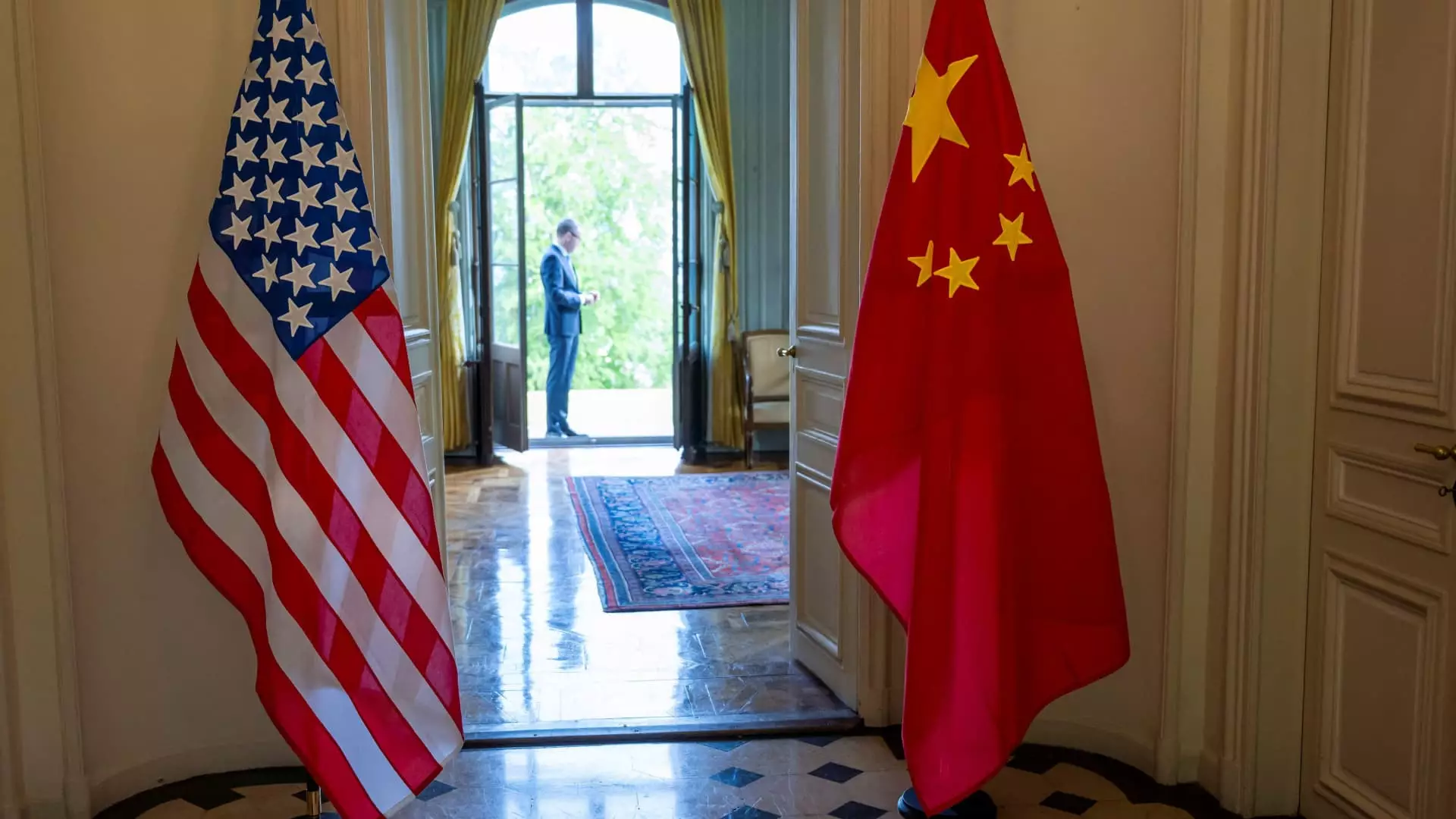In the intricate dance of international trade, the relationship between the United States and China remains a focal point of global dynamics. Recent statements from U.S. Treasury Secretary Scott Bessent highlight a notable stall in trade talks between the two nations, underscoring the need for direct communication between their leaders. Bessent’s assertion that upcoming discussions are crucial reflects a broader truth: high-stakes negotiations often demand personal engagement from those at the helm. As tensions have surged, the importance of a structured dialogue cannot be overstated, as it is pivotal in establishing trust and fostering understanding.
The complexity inherent in these discussions is compounded by the recent history of aggressive tariffs and limitations. The U.S. and China reached a tentative agreement in Switzerland, aiming to rollback some tariffs that soared by more than 100% just weeks prior. However, the road ahead appears bumpy as unresolved issues—such as tech restrictions imposed by the U.S. and China’s reluctance to lift its rare earth export controls—add layers of challenge to an already fraught situation. The interplay of negotiation tactics emphasizes that resolution will require not just talk, but substantial concessions from both sides.
Trade Tensions and the Call for Accountability
Bessent’s commentary reflects a prevailing sentiment that leaders like President Trump and President Xi Jinping must take charge of the dialogue. Their previous interactions have proven significant in paving the way for progress, and analysts suggest that a direct conversation could reignite momentum. However, the expectation is burdened by the condition that no unexpected actions occur during their exchanges—an indication of the fragile balance of power and the volatility of trust between the two nations.
Furthermore, the stakes have escalated significantly with the Trump administration’s recent decision to revoke visas for Chinese students. This move, deemed “fully unjustified” by China’s Foreign Ministry, introduces another layer of complexity in diplomatic relations. Visa limitations not only affect individual students but also symbolize an ideological rift that could have long-term ramifications for academic and cultural exchange. A reciprocal reduction in educational opportunities could foster resentment and further entrench divisions, raising questions about mutual understanding in an era that demands collaborative solutions to pressing global challenges.
Challenges in Global Trade Dynamics
Underlying the U.S.-China trade negotiations are larger questions concerning economic sovereignty and technological competitiveness. The hesitance of both nations to fully engage—or to abandon positions—signals a deeper fear of technological eclipse. This stems from multiple factors, including rising nationalism and concerns about security and industrial espionage. As countries navigate through a multi-polar world, the challenge lies in balancing innovation with collaboration, and competition with cooperation.
China’s response to U.S. tech restrictions suggests a staunch commitment to its national interests, illustrated through its refusal to immediately lift export controls on rare earth elements. These materials, crucial for various high-tech industries, symbolize the complicated interdependencies in geopolitics that can lead to dramatic shifts in both economies. In that context, China’s position of upholding “world peace and regional stability” reveals a narrative where both parties claim moral high ground, complicating efforts to achieve a consensus.
Unpacking Diplomatic Engagement
Moreover, Bessent’s comments shed light on the persistent demand for both nations to come together, heated by a backdrop of competing interests. The prospect of enhanced negotiations is intertwined with the recognition that dialogue must be actionable, moving beyond the surface of pleasant discussions into substantive agreements that reflect a mutual understanding and respect of each country’s concerns.
The trajectory of U.S.-China relations will likely be tested in the coming weeks as both nations seek not just to stabilize their economic relations, but to navigate broader geopolitical tensions. As the world watches closely, it becomes apparent that the outcomes of these talks will resonate beyond their borders, influencing global markets, partnerships, and the very essence of international cooperation amid rising tensions. Each decisive action and diplomatic overture may very well set the stage for a new era in U.S.-China relations, deeply affecting economic pathways and international alliances for years to come.

